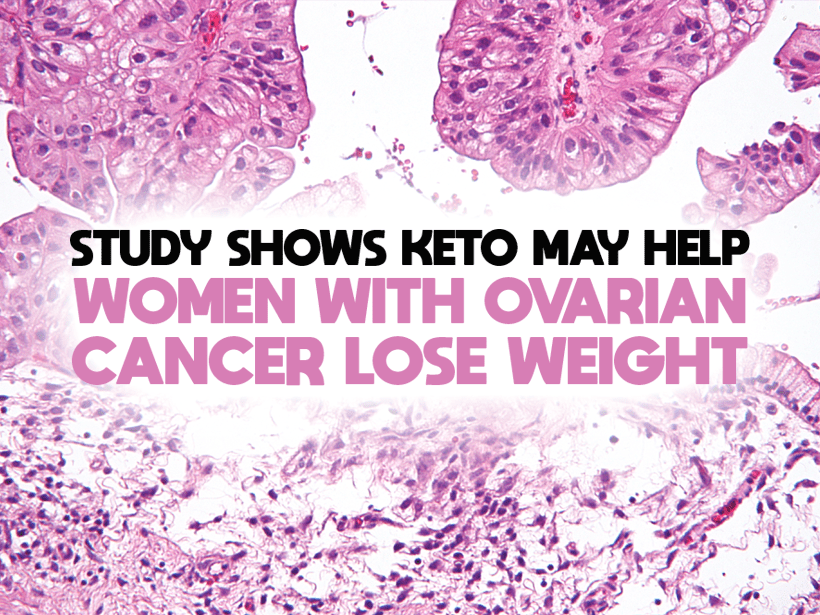The ketogenic diet has long been recommended by medical professionals for those looking to lose a significant amount of weight before an upcoming event or surgery. But can going low-carb help members of the population who are at a physiological disadvantage when it comes to shedding excess pounds? A new study conducted by researchers at the University of Alabama at Birmingham has found evidence to suggest that women with ovarian or endometrial cancer can improve their chances of reaching and maintaining a healthy weight by choosing to follow the ketogenic diet
Ovarian cancer and weight gain
Obesity has long been connected to an increased risk of developing endometrial cancer. One study found that reduction of weight was a significant intervening factor when it came to the progress of both endometrial cancer and breast cancer.1 Constipation, bloating, and the onset of tumors can also make it difficult for women who have been diagnosed to shed weight.
Researcher Kevin Fontaine from the University of Alabama at Birmingham stated that one of the principles behind the current study was to help provide guidance for women who are genetically predisposed to these conditions to lower their weight. “Ovarian and endometrial cancers are some of the deadliest cancers among women in the United States,” Fontaine said. “These cancers are also strongly linked to obesity and higher levels of insulin.”2
Losing weight without excessive exercise
Because the side effects of ovarian and endometrial cancer often make exercise difficult, the current research published in the Journal of Nutrition focused on shedding excess pounds primarily through diet. Forty-five overweight or obese women with ovarian or endometrial cancer were each randomly assigned to follow either the ketogenic diet or the diet recommended by the American Cancer Society, which encourages followers to consume a diet high in carbohydrates and low in fat. At the conclusion of the trial period, women assigned to the ketogenic diet condition had lost significantly more weight when compared to the control group. These results are theorized to be the effect of a diet that’s low in glucose and curbs the production of insulin—two factors that contribute to the growth of cancer cells and limit weight loss.
“Compared to the diet recommended by the American Cancer Society, which is moderate- to high-carbohydrate, high-fiber and low-fat, 12 weeks on a ketogenic diet, which is low-carbohydrate, high-fat, produced significantly lower levels of fat mass,” concluded Fontaine.2
Keto’s connection to cancers
The current investigation is far from the first foray into keto’s effect on cancer. Low-carb diets have been proposed as alternative treatments for multiple types of cancers, ranging from brain tumors to prostate cancers. In the future, it’s possible that this type of diet will be recommended by doctors to patients struggling to manage the symptoms of other types of cancers.
NUTRITIONAL DISCLAIMER
The content on this website should not be taken as medical advice and you should ALWAYS consult with your doctor before starting any diet or exercise program. We provide nutritional data for our recipes as a courtesy to our readers. We use Total Keto Diet app software to calculate the nutrition and we remove fiber and sugar alcohols, like erythritol, from the total carbohydrate count to get to the net carb count, as they do not affect your blood glucose levels. You should independently calculate nutritional information on your own and not rely on our data. The website or content herein is not intended to cure, prevent, diagnose or treat any disease. This website shall not be liable for adverse reactions or any other outcome resulting from the use of recipes or recommendations on the Website or actions you take as a result. Any action you take is strictly at your own risk.
- This Grocery Store Team Lost Over 200 Pounds Using Keto - December 19, 2018
- Treating Diabetes with Weight Loss - December 12, 2018
- Ancient Nutrition Connects With Natural Partners - December 5, 2018




